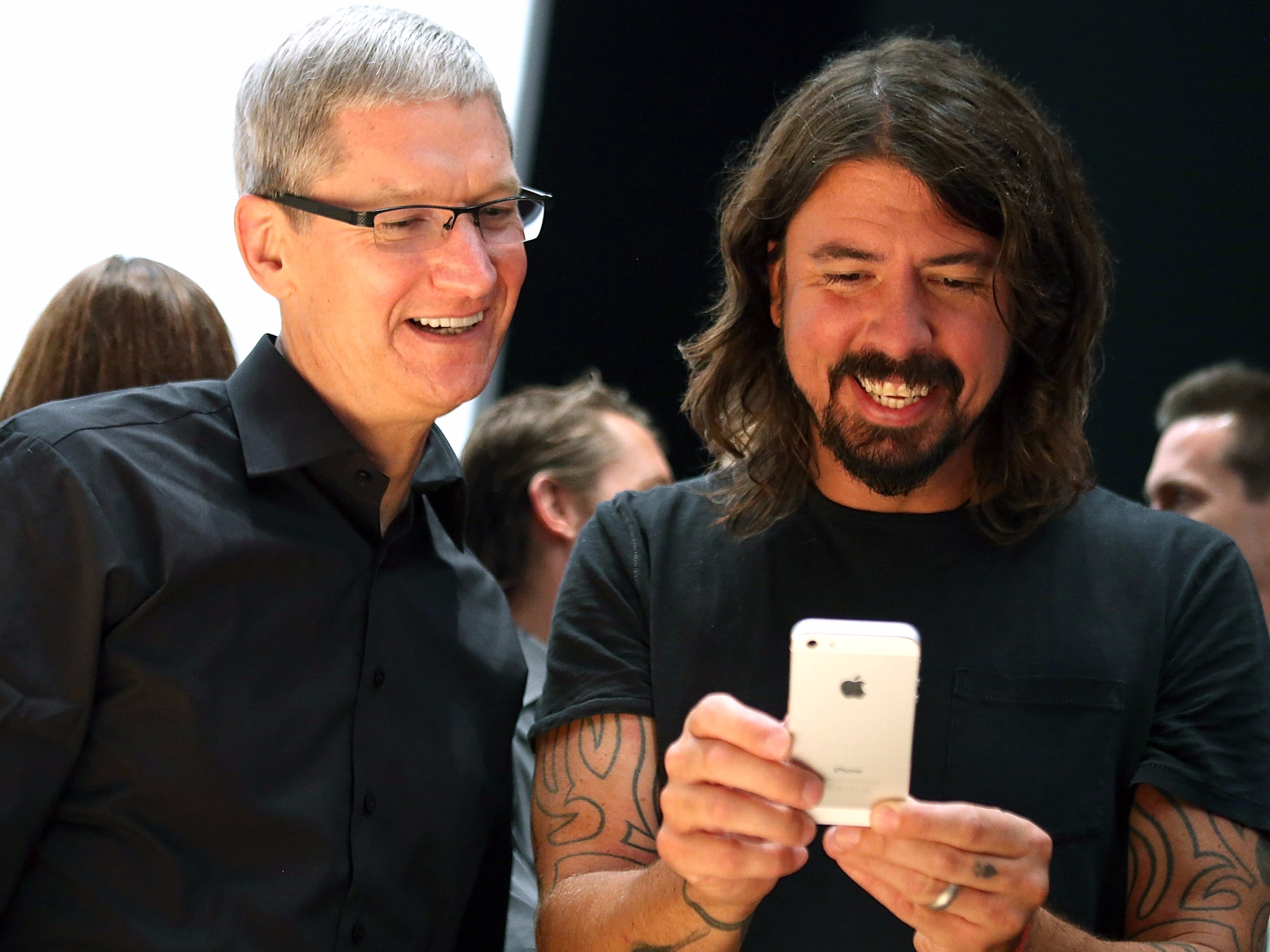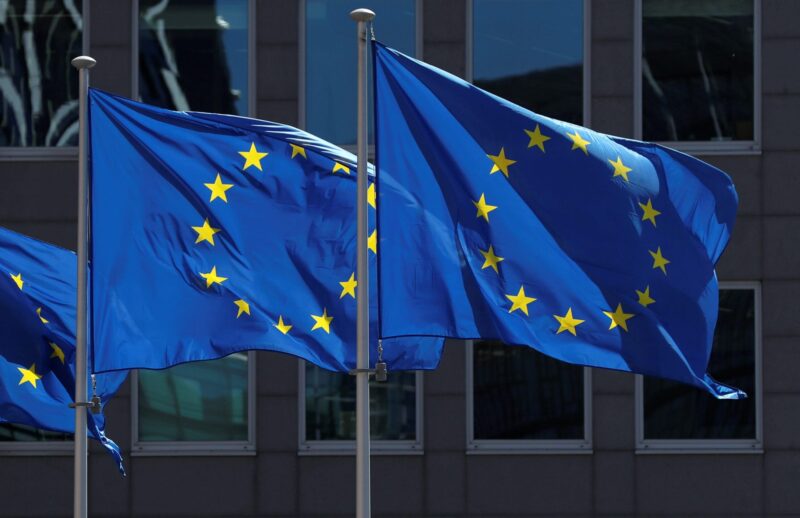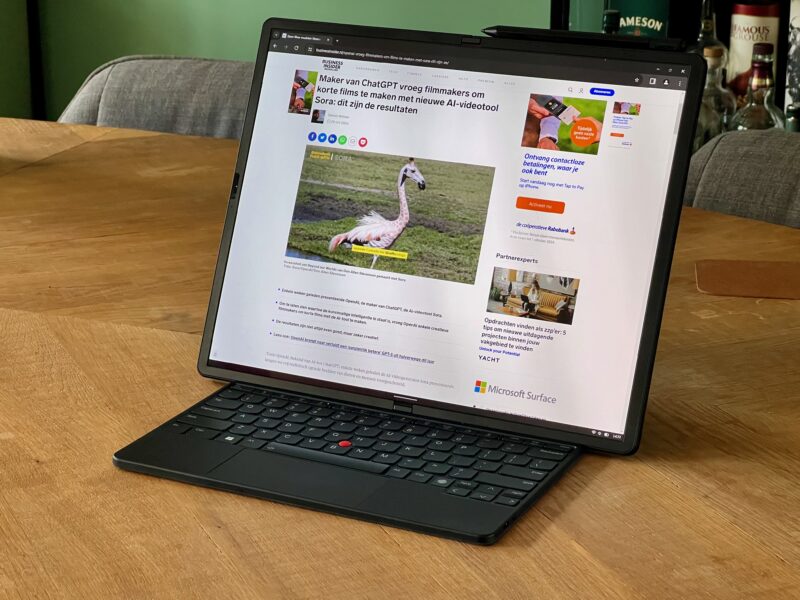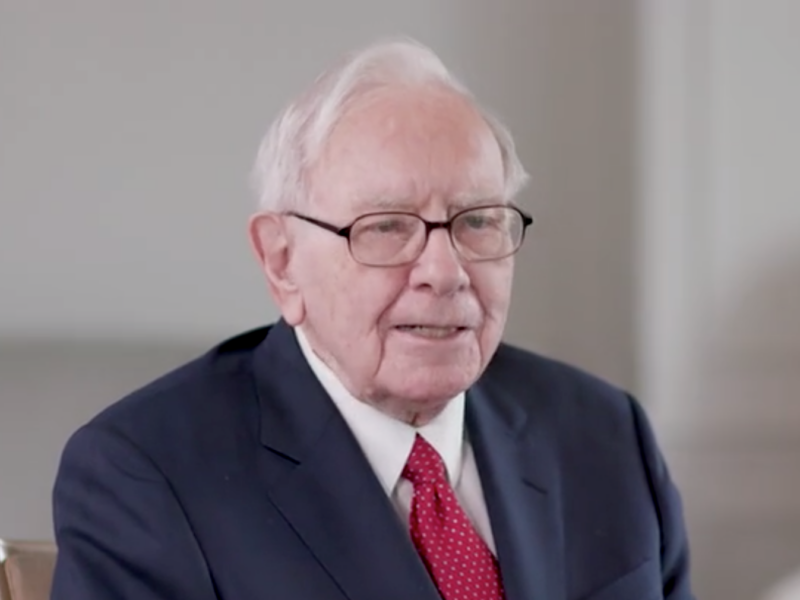Analysts from Barclays speculated in a note published on Thursday that one way Apple could convince customers to buy its upcoming $1,000 (£776) phone is through bundling the device with its Apple Music streaming service and increased iCloud storage space.
The Barclays analysts suggested that including a free year of Apple Music and 200GB of iCloud storage could make Apple $9.8 billion (£7.6 billion) in extra iPhone revenue in 2018.
The upcoming redesigned iPhone will likely sell for at least $1,000. That’s a substantial increase from previous iPhones.
Right now, most people buy iPhones that sell for around $700 (£543), as shown in a chart published by CLSA in July:
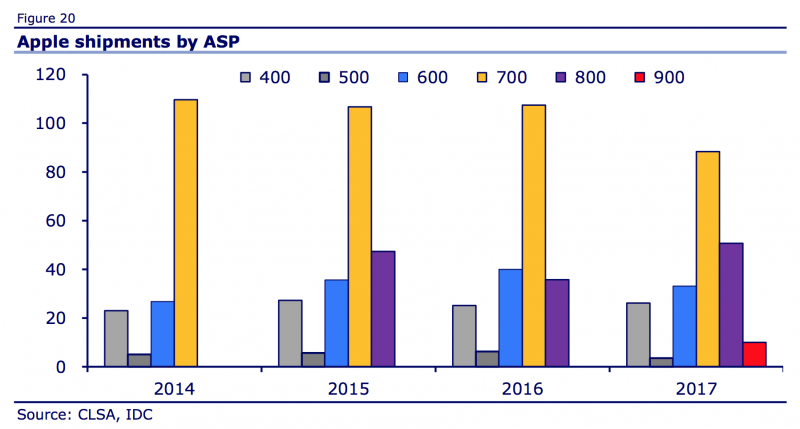
So Apple may need to include a sweetener with the iPhone 8 to convince people to pay the extra $300 (£233). Sure, the new phone will reportedly have a new design, larger screen, and facial recognition. But that price bump could be a stumbling block for a large number of customers.
Here's a chart from Barclays which shows how the proposed iPhone/Apple Music/iCloud bundle could work:
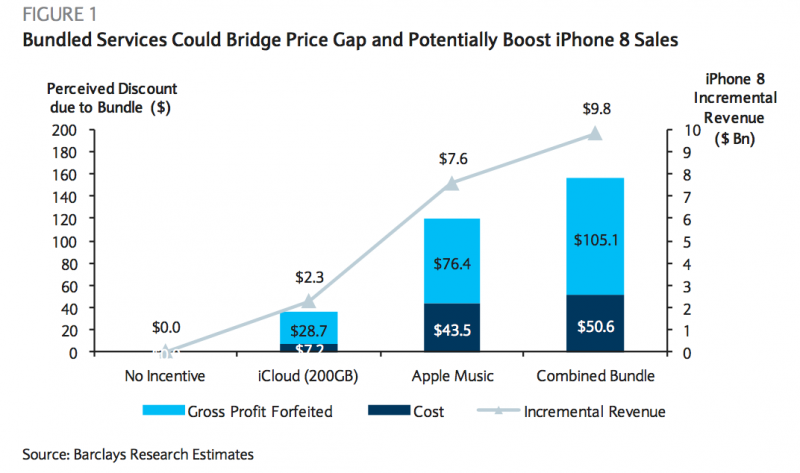
The bundle would make sense for Apple: It convinces more people to buy the expensive new iPhone (win), and it could introduce more people to Apple's subscription services (another win!)
Barclays estimates that Apple would cover the cost of giving away the services through the increase in iPhone sales. "We estimate incremental profits generated from higher iPhone 8 sales could outweigh additional costs, achieving gross profit accretion of $1.3bn, despite 1.8 pts of margin % dilution," the analysts wrote in the note.
And this wouldn't be the first time that Apple has bundled services with a hardware release. Back in February, Apple included three months of Apple Music with its new Beats wireless earphones. But it hasn't offered upgraded iCloud storage with hardware before - that's more of a Google thing. The Pixel phone came with unlimited lifetime storage for Google Photos, its photo storage service.

